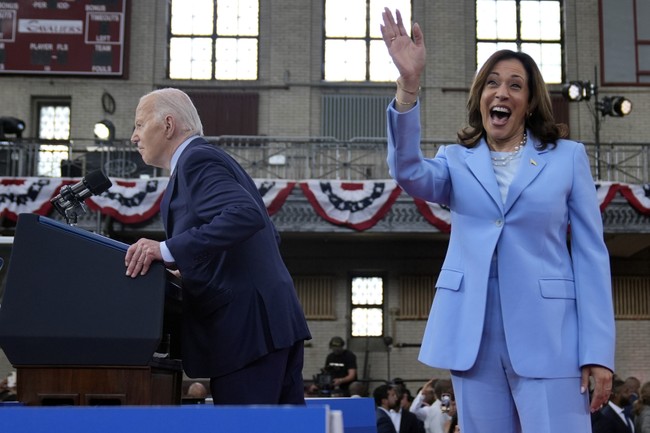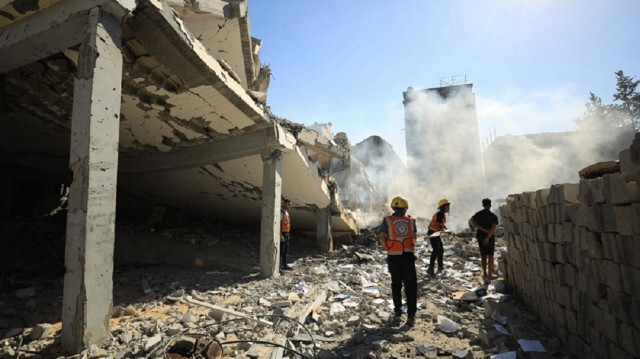Sudan on the Precipice: U.S. Mediates Peace Talks
In a bid to resolve the bloody conflict, the U.S. calls both Sudanese factions for peace talks in Switzerland, a move aimed at halting the violence and addressing the dire humanitarian crisis.
Published July 25, 2024 - 00:07am

Image recovered from alhurra.com
In the latest attempt to bring an end to the Sudanese civil war, the United States has called upon the Sudanese Armed Forces and the Rapid Support Forces to engage in ceasefire negotiations in Switzerland starting August 14. The announcement was made by U.S. Secretary of State, Antony Blinken, who emphasized the dire need to stop the bloodshed and alleviate the suffering of the Sudanese population.
Blinken outlined that the talks would see the participation of multiple influential observers, including the African Union, Egypt, the United Arab Emirates, and the United Nations, while Saudi Arabia is co-hosting the dialogue. The intention behind these negotiations is to cease hostilities countrywide and establish mechanisms for the verification and monitoring of the ceasefire agreements.
Since April 2023, Sudan has been engulfed in violence triggered by the power struggle between the Sudanese army, led by Abdel Fattah al-Burhan, and the paramilitary Rapid Support Forces, commanded by Mohamed Hamdan Dagalo, known as Hemeti. This brutal conflict has led to the deaths of thousands and has displaced millions, exacerbating an already critical humanitarian situation.
Hemeti has responded affirmatively to the invitation for the peace talks, expressing his willingness to participate constructively. He reiterated his commitment to saving lives, stopping the fighting, and paving the way for a peaceful political negotiation to restore civilian governance and democratic transformation in Sudan. However, the stance of the Sudanese military remains undetermined, with the official spokesperson and other high-profile military leaders staying silent on the issue.
Analysts provide differing viewpoints on the military's possible reaction. Political science professor Ezzedine al-Mansour from Sudan predicts a rejection of the American invitation. He cited a growing influence within the military by figures from the former regime of Omar al-Bashir, who might resist any negotiations that would lead to their exclusion from the political scene. Conversely, political analyst Othman Al-Mardi suggested that evolving dynamics, including recent discussions between Sudanese military leaders and UAE President Mohamed bin Zayed, could prompt a more favorable military response.
Past negotiations, such as those held in Jeddah, Saudi Arabia, under American and Saudi auspices, have not yielded substantial results, with both the army and the RSF trading accusations of breaching agreements. The need for a different approach in the upcoming Swiss-hosted talks is underscored by the international community's emphasis on broader participation and stricter enforcement mechanisms.
The humanitarian toll of the conflict cannot be overstated. According to United Nations reports, the ongoing conflict has resulted in over 25 million people, nearly half of Sudan's population, being dependent on humanitarian aid, with millions more displaced both internally and in neighboring countries like Chad, Egypt, and South Sudan.
Organizations such as Médecins Sans Frontières have highlighted the catastrophic impact of the conflict on civilians. The continuous siege of humanitarian access and the destruction of critical infrastructure, including healthcare facilities, have pushed the nation to the brink of a famine, with widespread food insecurity now pervasive.
Domestic and international political factions have voiced mixed reactions to the U.S. initiative. The Sudanese Congress Party, representing civil opposition groups, has expressed support, urging an end to the violence and a return to peaceful and democratic political processes. In contrast, remnants of the former ruling party under al-Bashir have cautiously welcomed dialogues but firmly opposed the involvement of nations they accuse of backing the RSF, implicitly criticizing the role of the UAE.
While the United States faces criticism for its perceived delay in taking decisive action, this renewed effort for peace has introduced a glimmer of hope. Secretary Blinken's emphasis on the necessity of these negotiations reflects a broader international acknowledgment that only a politically negotiated ceasefire and humanitarian access can halt Sudan's descent into further chaos and tragedy.
As Sudan grapples with the impacts of this devastating conflict, the forthcoming Swiss talks mark a critical juncture. Success hinges not only on the willingness of the warring factions to engage sincerely but also on sustained international pressure and support to enforce and monitor potential agreements, securing a path to lasting peace and reconstruction for a fractured nation.







